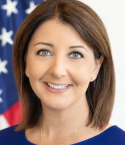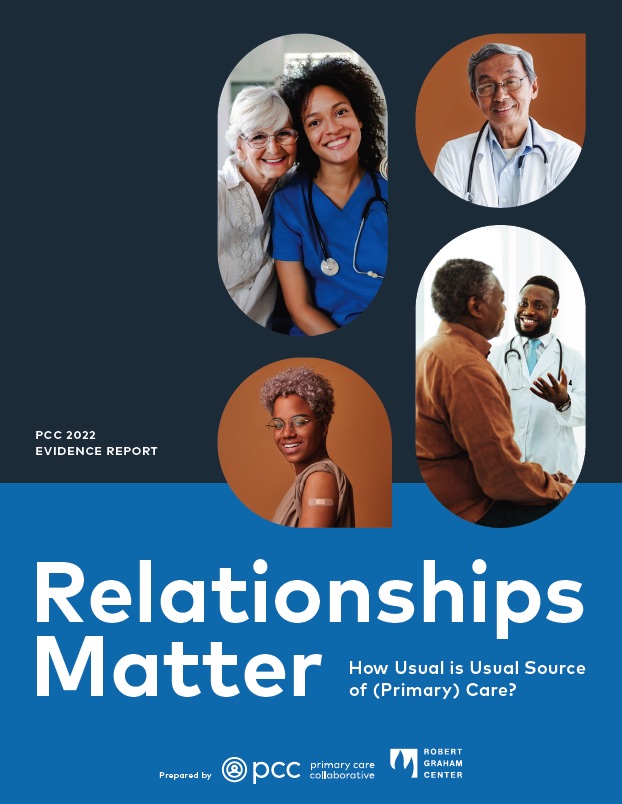You are looking at an archived version of our site. Please visit thepcc.org for a fresh, new experience!
A Shot in the Arm: How Primary Care Boosts CDC’s Vaccine Efforts
On August 2, 2024, the Primary Care Collaborative (PCC) hosted a discussion with CDC Director Dr. Mandy Cohen about the CDC’s efforts on childhood vaccination and how the primary care community can shore-up those efforts.
Vaccines keep children healthy and are a critical part of an effective public health system. Unfortunately, vaccination rates have started to wane over the past few years – putting children and their communities’ health at risk.
CDC Director Dr. Mandy Cohen joined American Academy of Pediatrics (AAP) CEO and PCC Board Chair Mark Del Monte for a fireside chat exploring the CDC’s efforts to shore up vaccination rates – especially among children heading back to school this fall. The conversation also dove into how the primary care community can help bolster the CDC’s efforts and ensure patients are getting critical vaccines they need to keep themselves and their communities healthy.
Following the conversation, the webinar closed with a panel discussion featuring Children’s National Hospital’s Dr. Lanre Falusi and Indiana Immunization Coalition’s Lisa Robertson, who provided an on-the-ground reaction to the Director’s remarks.
Dr. Cohen opened the conversation by noting the monumental leaps public health has taken thanks to the development and implementation of routine immunization as a significant public health achievement.
“I'm lucky enough to be a physician that has never seen a case of polio. And that's because since 1988, we've prevented 20 million cases of paralysis,” said Dr. Cohen. “It's almost unfathomable to think about those kinds of numbers and what what the alternate reality would be if we didn't have those vaccines, but we're grateful that we have those tools.”
Dr. Cohen also recognized the ongoing efforts needed to ensure vaccines are administered. She highlighted that 93% of entering kindergarteners are up to date on routine immunizations like measles, polio, and chicken pox. With a temporary dip during COVID-19 in these immunizations, the CDC has cultivated efforts to rebound. However, Dr. Cohen stressed the critical role of doctor-patient conversations in encouraging vaccination, both for routine and newer vaccines like COVID-19. This includes encouraging questions to foster dialogue and ensure patients understand the importance of protecting against these viruses.
Del Monte agreed with this approach, highlighting that many parents ask questions about vaccines out of concern for their children's health.
Dr. Cohen also highlighted the need for a unified, collaborative approach between public health officials, pediatricians, educators and elected officials in getting people vaccinated. This includes combating misinformation through timely, easy-to-understand, and engaging content that is adaptive to the diverse ways people stay informed today. The CDC wants to play a role in providing clinicians with the resources to answer questions and provide accurate information. There also is a need for accurate data to identify areas with low immunization rates to address access problems.
Ultimately, Dr. Cohen emphasized the importance of ordering updated vaccines now and integrating them into practice workflows.
After the conversation, AAP CEO Mark Del Monte asked for reactions from Dr. Lanre Falusi, a pediatrician and the Medical Director of Advocacy education at Children’s National Hopsital’s Child Health Advocacy Institute; and Lisa Robertson, Executive Director of the Indiana Immunization Coalition.
Dr. Falusi emphasized the importance of pre-education for patients, reminding them of upcoming annual vaccines like COVID, flu, and RSV during current visits. This preparation helps avoid surprises and ensures patients are aware of necessary vaccinations.
Also important is addressing patient questions directly. She illustrated the effectiveness of primary care in building trust, citing a case where a mother initially declined a vaccine but agreed to it after a long, empathetic conversation. It’s important for clinicians and other community members to work together to combat misinformation.
Robertson also discussed strategies for overcoming misinformation as well as vaccine fatigue. She stressed the importance of proactive education and community outreach, including using diverse channels and connecting with trusted community figures.
Robertson also noted the challenge of COVID-19 vaccine fatigue, likening it to seasonal flu vaccines and advocating for consistent messaging and flexible strategies to maintain public trust. Both agreed on the need for inclusivity in decision-making and effective communication to address future public health challenges.
Medical Director of Advocacy Education , Child Health Advocacy Institute of Children’s National
Olanrewaju (Lanre) Falusi, MD, MEd is a primary care pediatrician at Children’s National Hospital and an Associate Professor of Pediatrics at the George Washington School of Medicine and Health Sciences focused on the intersection of health equity, advocacy, and medical education. As Medical Director of Advocacy Education in the Child Health Advocacy Institute of Children’s National, Dr. Falusi develops community-based curricula for trainees and faculty and researches the health outcomes of governmental policies. She is an Associate Program Director in the Children's National Residency Program, directing the LAUnCH Track, which trains pediatric residents to become leaders in advocacy, policy, and community healthcare delivery. read more
Executive Director, Indiana Immunization Coalition
For the past 11 years, Lisa Robertson has been the Executive Director of the Indiana Immunization Coalition. In addition to the coalition's work in advocacy, education and partnerships, over the past 4 years the coalition has administered over 127,800 vaccines. Lisa has been recognized for her work in public health by the Indiana Cancer Consortium, Indiana School Nurses Association, Indiana Public Health Association and the Indiana State Health Commissioner. Lisa is passionate about decreasing misinformation, health disparities, and barriers to care.
Prior to her work at the Indiana Immunization Coalition, Lisa was the Director of Reach Out and Read Indiana for 11 years. Lisa Robertson received her undergraduate degree from Hanover College and her Masters in Public Health from Indiana University.
read more
Director, Centers for Disease Control and Prevention
Dr. Mandy Cohen is the Director of the Centers for Disease Control and Prevention, where she manages and directs the activities of the agency which includes developing and applying disease prevention and control, environmental health, and health promotion and health education activities designed to improve the health of the American people as well as other nations and international agencies. read more
CEO/Executive Vice President, American Academy of Pediatrics
Mark Del Monte, JD serves as the CEO/Executive Vice President of the American Academy of Pediatrics (AAP). In this capacity, Mark leads a strong executive team for the organization which serves 67,000 pediatrician, pediatric medical subspecialist, and pediatric surgical specialist members. Prior to this role, Mark served as the AAP’s Chief Deputy and Senior Vice President for Advocacy and External Affairs where he directed the organization’s communications, public relations and advocacy activities. read more
Date
August 2, 2024
What's New
August 16, 2024
- Page 1
- ››








